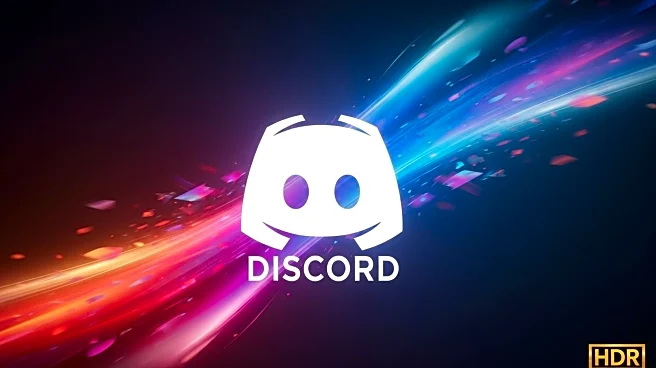What's Happening?
In Morocco, a movement led by young Moroccans under the banner 'GenZ 212' has emerged, demanding significant reforms in healthcare, education, and employment sectors. The protests, which have spread across multiple cities, have been organized primarily through Discord, a platform initially popular among gamers. The movement has gained momentum rapidly, with membership soaring from 3,000 to 130,000 in a short span. The protests have turned deadly, with clashes resulting in the deaths of three individuals. The movement criticizes the government's focus on infrastructure projects for the 2030 FIFA World Cup, arguing that resources should instead be directed towards improving public services.
Why It's Important?
The protests in Morocco highlight the growing discontent among the youth regarding government priorities and the use of digital platforms like Discord for organizing. This shift from traditional social media platforms like Facebook to Discord signifies a change in how modern protest movements are mobilized. The demands for reforms in critical sectors such as healthcare and education reflect broader societal issues that resonate beyond the youth demographic. The government's response to these protests could have significant implications for political stability and policy direction in Morocco, potentially influencing similar movements in other regions.
What's Next?
The Moroccan government, led by Prime Minister Aziz Akhannouch, has expressed openness to dialogue. However, the protesters have called for his resignation, indicating a potential escalation in tensions. The outcome of these protests could lead to policy changes if the government decides to address the grievances. The international community, particularly countries involved in the 2030 FIFA World Cup, may also monitor the situation closely, given the criticism of infrastructure spending priorities.
Beyond the Headlines
The use of Discord for organizing protests represents a broader trend of digital adaptation among younger generations. This shift could influence future protest strategies globally, as platforms offering privacy and anonymity become more appealing. The movement's focus on redirecting resources from high-profile events to essential public services raises ethical questions about government spending priorities and accountability.









